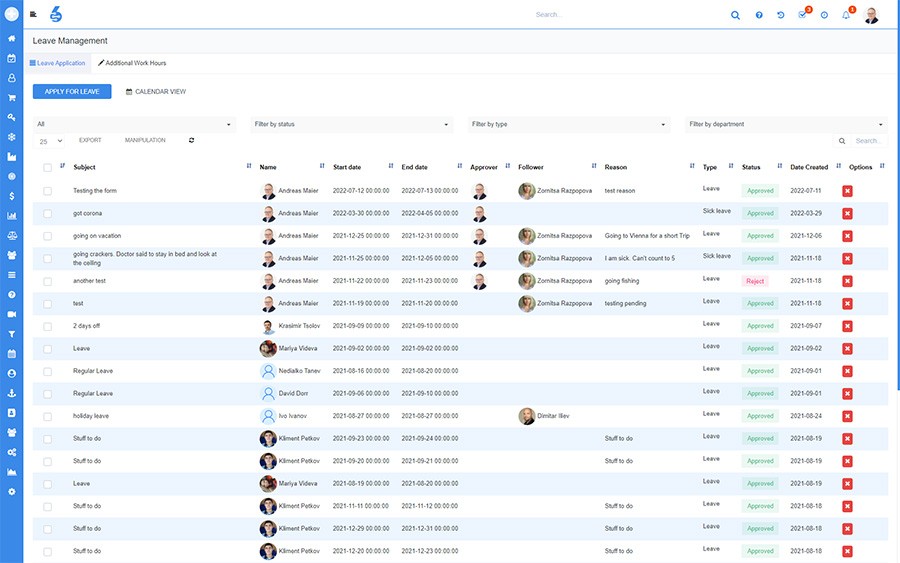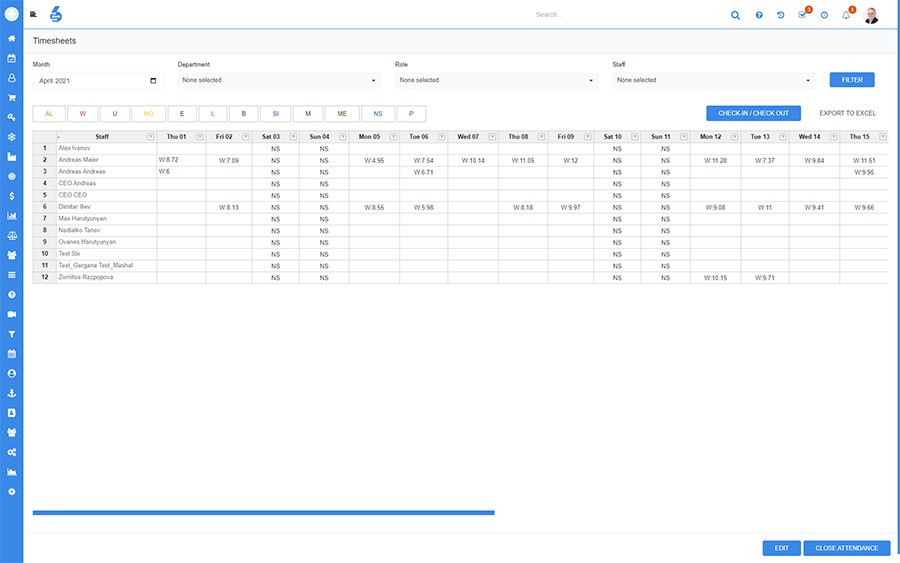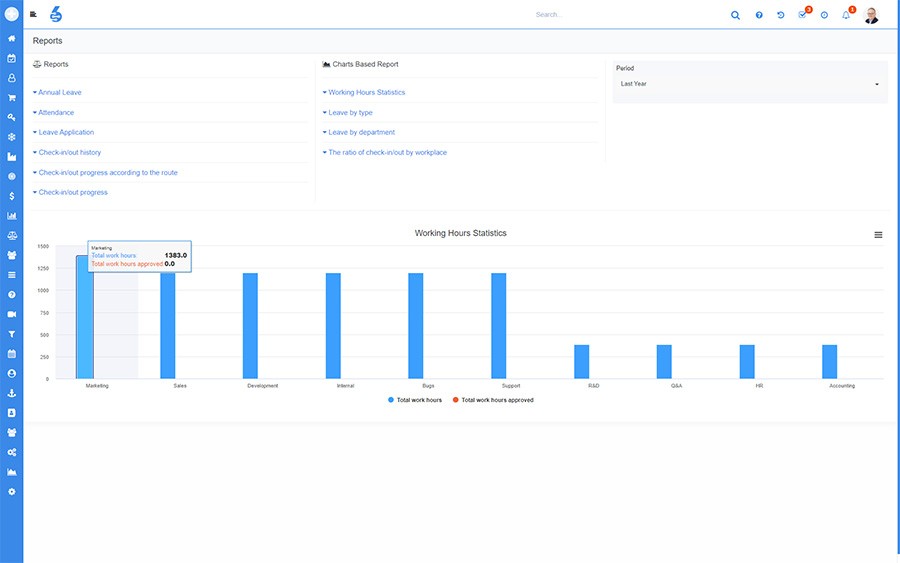Time Management
Tracking every aspect of Time, Work Time, Sick - and annual leave
Timekeeping and timesheet management are essential aspects of any ERP system. Without an accurate record of the hours worked, it cannot be easy to accurately track project costs and budgets. Timekeeping also helps ensure that employees are paid for the hours they work.
There are several ways to manage Timekeeping in an ERP system. One common approach is to use time-tracking to track the time spent on each task. This can help ensure that employees are accurately recording their time. Another method is to use time clocks to track employee arrival and departure times. This can help managers verify that employees are working the hours they claim to be working.
Regardless of the approach used, it is important to have a process in place for managing Timekeeping in an ERP system. This process includes procedures for recording time, submitting time sheets, and approving or rejecting time sheets. It is also essential to have strategies for handling exceptions, such as employees who work overtime or employees who are absent from work.
- Enforce Time tracking and Timekeeping
- Clock In - Clock out
- Set Deadlines
- Overview of "Time"
- Bill Clients based on worked time
- View Timesheets based on Tasks and Projects
- Identify Bottlenecks
- Track Leave and Sick Leave

Time tracking and Timekeeping are important aspects of any business. They help to ensure that employees are working the appropriate number of hours.
Enforced Time tracking and Timekeeping is a tool that can help businesses ensure that their employees follow these policies. It can also help to ensure that employees are not working unauthorized hours.
Clock-in and clock-out for time tracking purposes are enforced using SIX ERP time tracking software. When an employee clocks in, the time tracking software records the time and date. The software records the time and date when the employee clocks out. This allows employers to track how many hours employees worked on a particular day.
In project management, setting deadlines is critical to keep a project on track. Team members can better plan their time and resources by establishing a timeline and specific milestones. Missing a deadline can have serious consequences, such as missed opportunities or late delivery of a product.
There are several factors to consider when setting deadlines in project management. First, it is important to establish what the deadline is for and what the consequences will be if it is not met. Next, it is necessary to understand the available resources and how much time is needed to complete the task. Finally, creating a realistic timeline that considers potential delays is important.
Time Management and Timekeeping is heavily integrated into SIX ERP, allowing for advanced levels of control over staff time.
Timekeeping is an important part of any service-oriented business, especially those that bill their clients based on the time worked. There are a few different ways to handle Timekeeping, but the most common is to break it down into increments. This simplifies billing clients, as you can multiply the number of hours worked by the appropriate hourly rates.
There are a few things to remember when billing clients based on time worked. First, ensure employees track all the time they work, even if it's just for a few minutes. This will help ensure that you're billing your clients accurately. Secondly, be aware of any overtime rates that may apply.
Viewing timesheets is integral to managing employee hours and ensuring that everyone is paid accurately. In addition, tracking leave and sick time can be beneficial in ensuring that everyone is taking the appropriate time off. SIX ERP timesheet management system provides these features and more.
The SIX ERP time tracking management system is complex and very comprehensive. Every time aspect is taken into account and calculated so Human Resources - and Project Managers can easily track all relevant data.
One common issue with time tracking is that it can be challenging to track staff time accurately. This can be due to some factors, such as employees not accurately reporting their time, or discrepancies between the time tracked and the actual time worked. This can lead to problems such as lost productivity, missed deadlines, and inaccurate billing.
Another common issue is that time tracking can be a bottleneck for staff productivity. This often happens when staff is required to spend a lot of time tracking their time, rather than working. This can lead to frustration among staff and decreased productivity.
SIX ERP addresses these issues by implementing better tracking methods or automating tracking processes. By addressing these issues, businesses can improve their staff productivity and ensure that their time-tracking strategies are practical and efficient.
“ The most customizable solution we found replacing our legacy CRM solution we worked with for too long. ”

Ludomil Lakov
Director of Sales | CANTEKWant to see SIX for yourself?
Need help, have questions or want to get a free demo?
Please read our Privacy Policy on how we process personal data. We will never share your data!






